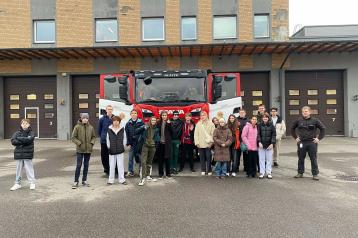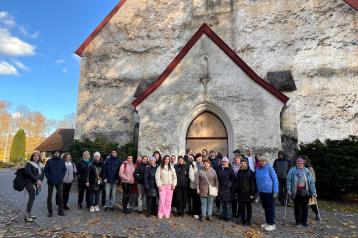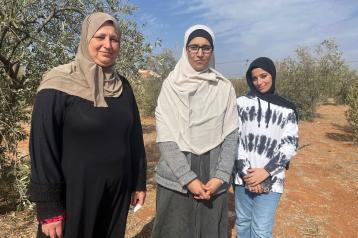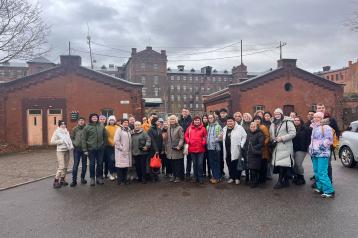Countries
The Shevchenkove community is one of the hardest-hit areas in Mykolaiv region of Ukraine. In 2022, it was on the frontline—eight of its settlements were occupied, and the others came under constant attack.
Before the full-scale invasion, this region was well-developed and prosperous, driven by local factories. However, during the active hostilities, 80% of its agricultural enterprises were severely damaged, and several major businesses relocated to safer areas and have not returned. Shelling also devastated roadside infrastructure, including gas stations, cafés, restaurants, hotels, and service stations, all of which had been actively expanding at the time. Many educational, medical, and administrative facilities were destroyed as well.
Today, 82% of the residents have come back to the community. Despite the challenges, people are gradually resuming their economic activities.
ERC’s Emergency Livelihoods Programme, funded by the EU, helped local people to meet their immediate needs and provide for themselves again.
Hennadii and his wife, both retired, were forced to flee their home when the full-scale war began. Today, in their village, only the foundation of their house remains. Now, they have to start from scratch. With support from an ERC grant, they were able to buy a pregnant cow and keep their household running.
Yevhen and his wife Tetiana are raising three children. In 2022, their home was damaged by shelling—the fence, walls, and roof were all hit. Fortunately, no one was home at the time, and the family survived. They make a living by selling homemade dairy products. Thanks to the grant support, they purchased a cheese-making machine to expand their product range and increase their income.
Maryna supports both herself and her retired mother. With the help of an ERC grant, she bought hens and ducks to improve the family’s financial situation. This was the first time she received cash-based humanitarian assistance since the full-scale invasion.
More than 2 million hryvnias in aid reached the residents of Shevchenkove community through the ERC’s Emergency Livelihoods Programme funded by the European Union. The programme was implemented in partnership with Acted.







